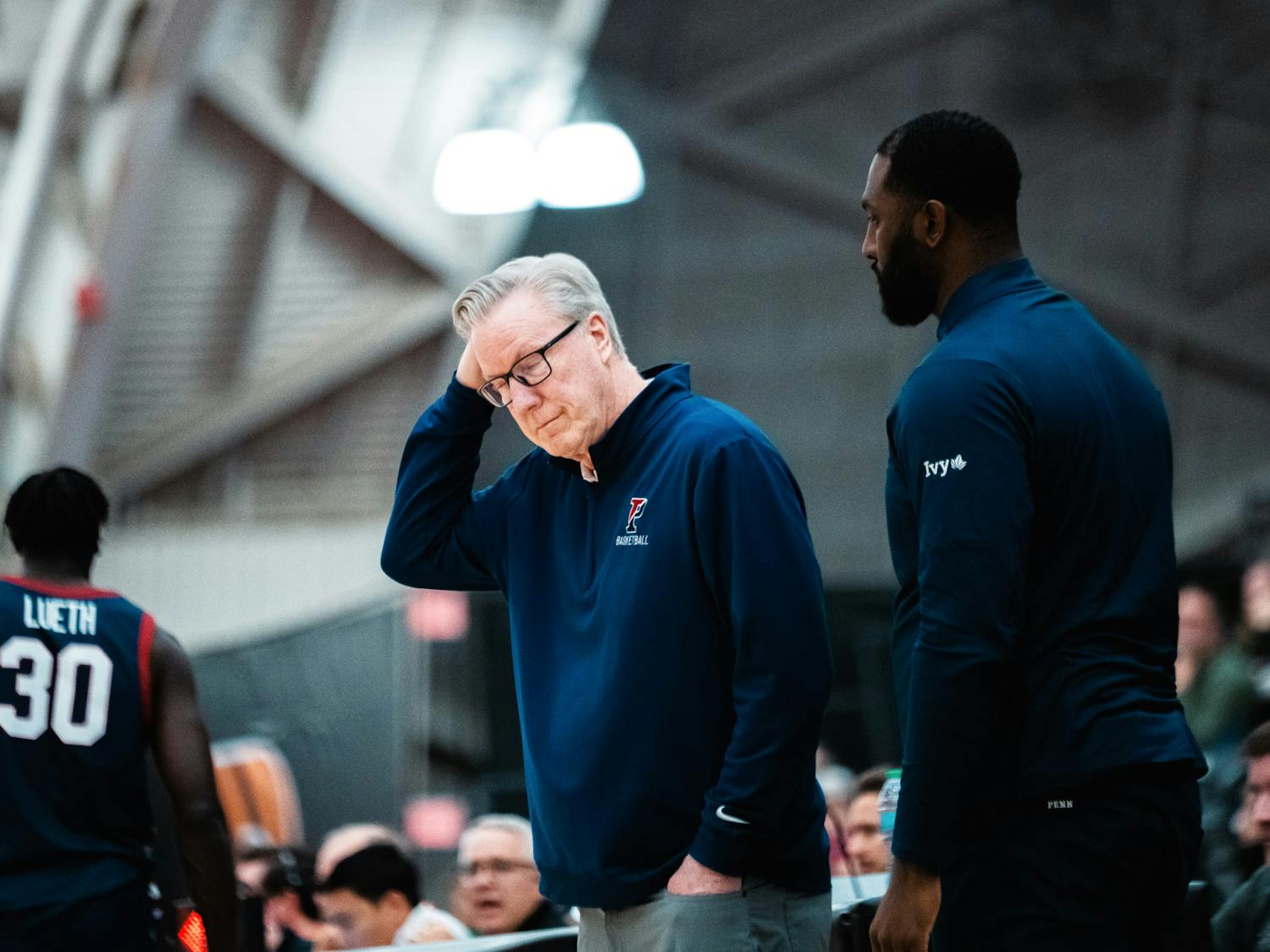If you stopped paying attention after the United States team marched into the Winter Olympics Opening Ceremonies in Turin a few weeks ago, you probably missed the entrance of the Thailand delegation after the Stati Uniti.
And if you figured that all of the American athletes competing in Turin did so for their country of residence, you overlooked the Thais again.
But if you want to make up for that now, you need only to head across Market Street to the electrical and computer engineering department at Drexel University and to the offices of professor Prawat Nagvajara.
Originally from Bangkok, Thailand, Nagvajara competed in the 15-kilometer cross-country skiing race for his native country in Turin. He was the only athlete from Thailand in the Olympics, and he carried his country's flag at the Opening Ceremonies.
At age 47, he was also the oldest athlete competing in an endurance event at this year's Games.
He finished in last place out of the 97 athletes who crossed the line, recording a time of 1:07:15.9 -- a far cry from the gold-medal winning time of 38:01.3 posted by Estonia's Andrus Veerpalu.
But that didn't matter.
"I finished," he said. "I'm happy."
For a while, he wasn't sure that would be the case -- especially because the course at Pragelato fell victim to a blizzard on the day of the event. The conditions affected the wax Nagvajara and the other competitors used to help them navigate the terrain.
"The first three kilometers were great, then the snow started building up and [the wax] wouldn't stick anymore, and from there it was rough," he said.
This led to some embarrassing moments on the course, which the competitors circled twice during the race.
"On the downhill, there's a steep downhill and a dip up a little bit," Nagvajara said. "At the very same place [on] the two laps I was stuck and went flying. The second lap, I broke the pole and the ski hit smack on my face."
In the spirit of Olympic brotherhood, a coach from Belarus gave Nagvajara a replacement pole.
He "gave me their spare pole and patted my back and told me 'Go, go!,'" Nagvajara said. "That was really nice."
In order to qualify for the Games in the first place, he had to produce a sufficient result in a Federation Internationale du Ski race. The exact formula used is a combination of the length of the race, the winner's time and the time the potential qualifier posted. Nagvajara managed to qualify in a race held in the U.S.
Still, Nagvajara understood his place among cross-country skiing's elite. This was made clear over the course of the time trial- based start to the race, in which the slower competitors began first.
"By the time the medal contenders started I had almost finished," he said. "I think they passed me before I finished, but that wasn't a problem -- when I saw them coming I stepped out of the way."
In the end, though, Nagvajara said the experience was worth it regardless of where and when he finished.
"To be in the same race with my heroes, the people I see in the magazines and stuff, is amazing," he said. "My skier friends, they really envy me. They're like, 'I can't believe you get to race with all these guys.'"
Nagvajara's training regimen makes it even more impressive that he even got to Turin. Simply put, there aren't a lot of places to cross-country ski around Philadelphia. Instead, he did a lot of long-distance running and worked out on NordicTrack machines.
There's nothing quite like putting skis to snow, however.
"Just the slippery feel of it, I had to waste energy with the balance," he said. "But I have to do what I can do."
He added that "it's still better than if I lived in Thailand," where it's warm throughout the year.
Once he got to Italy, Nagvajara was based in the mountain village of Sestriere. But he was still able to spend time in Turin with his wife and two children, who rented an apartment in the city.
This allowed him to sample quite a bit of Italy's renowned cuisine, although Nagvajara said that the regional Piedmont fare "is not like Italian that I know."
Nonetheless, he said that for, the most part, "it's like South Philly in the restaurants."
This was Nagvajara's second trip to the Olympics --- he competed in Salt Lake City in 2002 --- and also his last. Now that he has retired from skiing, he said, he intends to help build the winter sports following in Thailand.
That is not an easy task, given the Thai Olympic Committee's tight budget. Nagvajara said the best thing to do is focus on short-track speed skating, a sport that already has a major Asian influence.
"If we start training 12- to 13-year-old youngsters now, by Vancouver [in 2010] we could have a team, and maybe eight years from now we could be a contender."
In the meantime, Nagvajara will keep teaching at Drexel, as he has for the last 15 years. That commitment made him come home even before the closing ceremonies; he could not find a substitute teacher for one of his Friday classes two weeks in a row.
So this past week, his students "all came up after class and asked how it was and all that."
Even the last-place finishers get their moments of fame.








